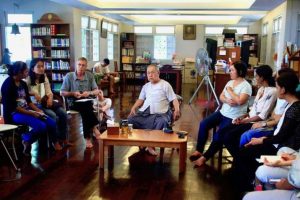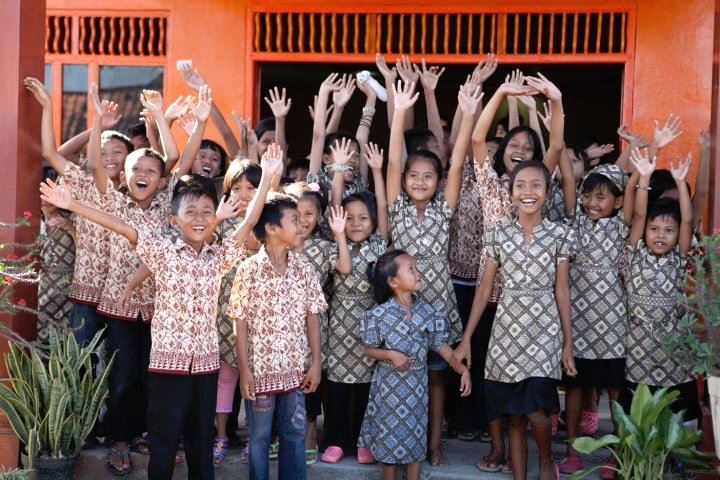
Some 25 kilometres west of Jakarta lies the megacity of Tangerang—the 8th most populated suburb in the world, with a population of 1.4 million.* In May, the city received the Indonesia Digital Economy Award from a leading consulting firm in Indonesia for its successful development as a “smart” city. And with Soekarno-Hatta International Airport connecting Greater Jakarta with other major cities in Indonesia, Tangerang has been hailed by Mayor Arief Wismansyah as the “aerotropolis city” of the future.**
But beneath this façade of modernity and material success, however, lies the hidden underbelly of a different reality—narrow streets lined with dirt and stones, and families living in decrepit wooden shacks that can barely keep out the rain, much less withstand a severe monsoon. The proliferation of new high-end condominiums, luxury shopping malls, expensive restaurants, and exclusive private schools make little difference to the lives of the scrawny children who meander barefoot through the traffic to vend their wares for a few dollars. For them, the sound of children’s laughter at Taman Wisata Pulau Situ Gintung water amusement park belongs to another world, and attending school, much less aspiring to a university degree, is but a distant dream.
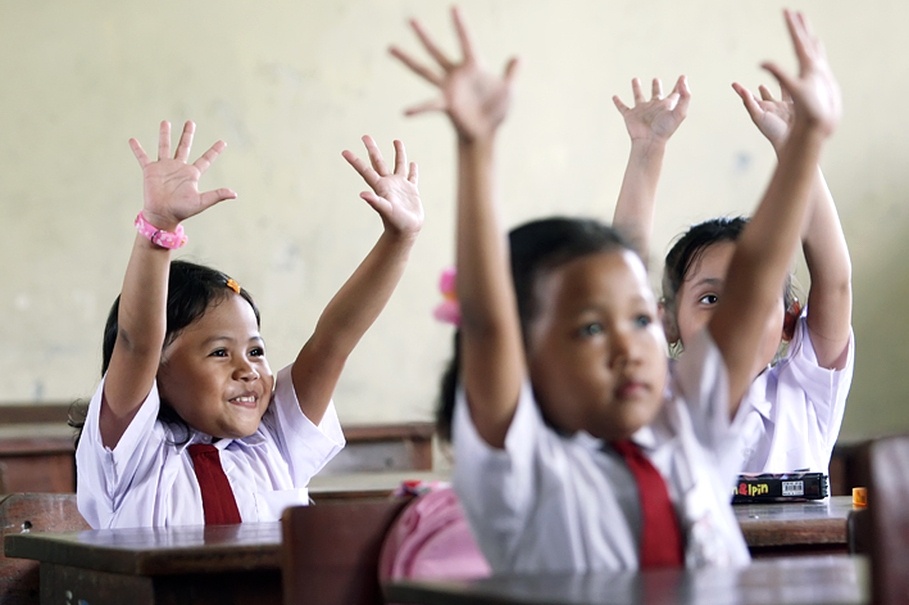
In his opening speech at the 2015 World Economic Forum, Indonesian President Joko Widodo emphasized, “Today we must shift . . . from consumption to investment: investment in our infrastructure, investment in our industry, but most importantly investment in our human capital, the most precious resource of the 21st century.”***
But the sad reality is that approximately 40 per cent of Indonesia’s population remain clustered around the national poverty line of 330,776 rupiah (about US$25) per person per month. Only 55 per cent of children from low-income families are enrolled in junior secondary school, with the average student receiving just 5.8 years of schooling. In remote areas, the numbers are much lower.**** Many impoverished parents simply do not have the means to send their children to school, nor do they see a need for their children to continue schooling. Following the example of their parents, children usually become subsistence farmers or manual labourers. With a dearth of opportunities to explore other options, few dare dream.
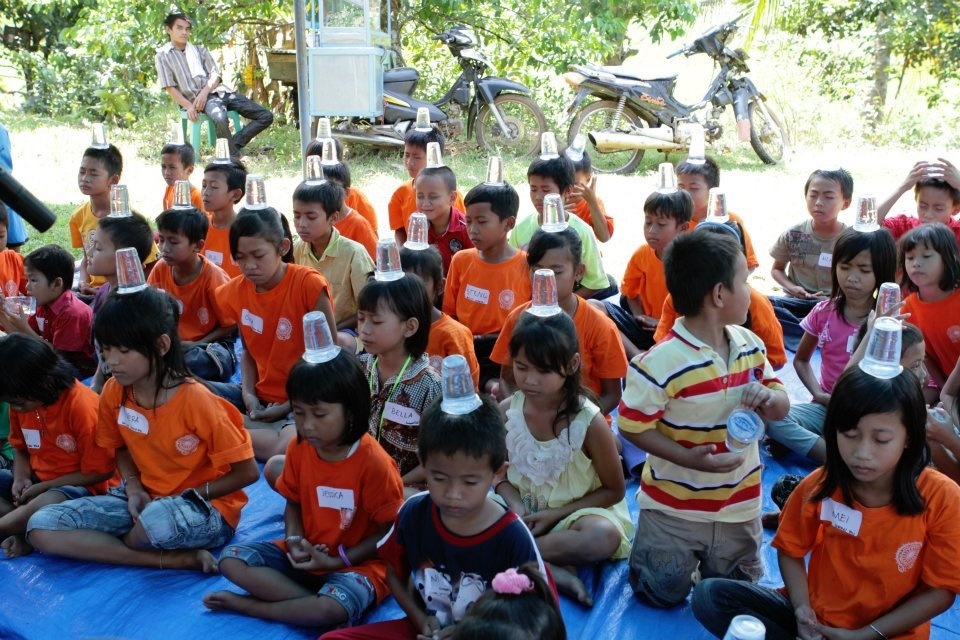
But a few fortunate ones, such as 14-year-old Sugandi, may have found a path to a better life. As he rummages through heaps of garbage in a back alley, picking out metal scraps and waste plastics, Sugandi’s mind is far away. He dreams of the day when he can earn his keep as a skilled mechanic and buy a beautiful house for his parents and three siblings to give them a better life. And he knows this is not an impossible dream. Sugandi is more fortunate than the millions of children in Indonesia who never make it beyond primary school, or worse, never even step into a school. Thanks to the support of the Pintu Belajar organization, Sugandi is able to attend a vocational school, and to explore the possibility of a better life. With diligence and determination, his dream may just come true.
Pintu Belajar, which literally means “Door of Learning,” is a non-profit charity program started in 2007 by the Buddhist Fellowship of Indonesia. It aims to provide educational opportunities for Indonesia’s many underprivileged children by funding their educational needs, irrespective of race or religion, and supports initiatives such as the construction and renovations of schools and teacher training to improve the quality of education in outlying and less-accessible areas.
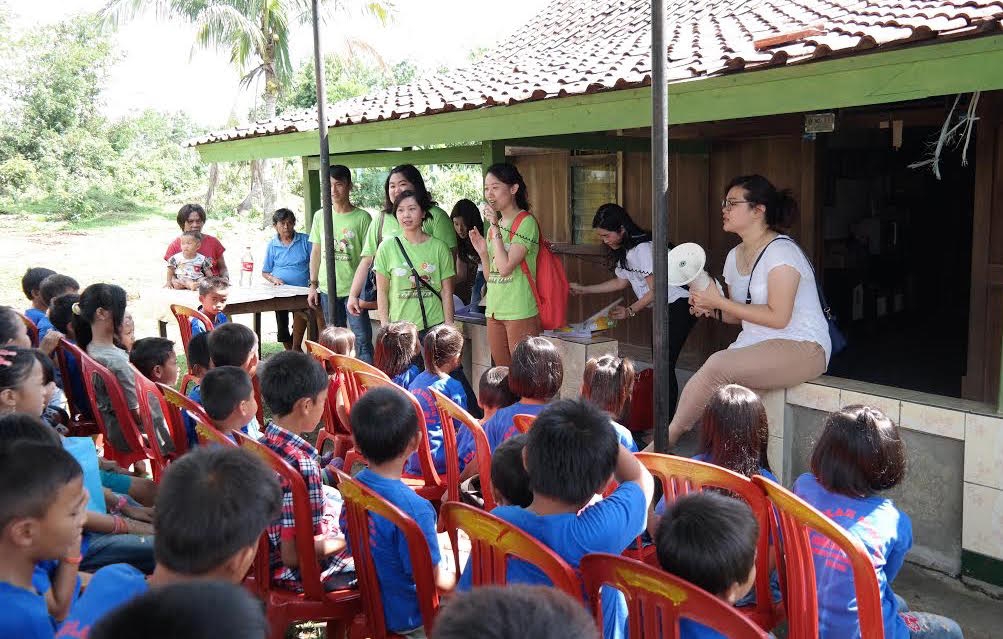
To identify those who are most in need of support, Pintu Belajar sends out teams of volunteers to survey neglected and remote villages to assess the conditions and needs of low-income families. Through an interview process, the team studies each individual case to ensure that the child can access the appropriate aid program. Besides academic performance, the team also considers the living conditions and immediate environment of children to evaluate whether or not they are conducive to the children’s future growth in education. This includes getting to know their families, their daily activities, their social circles, their interests, and level of education. The teams also emphasize to potential beneficiaries the requirement for, and importance of, their active participation to achieve success in the support programmes.
In addition to paying school fees, Pintu Belajar strives to lighten the burden borne by struggling families over the child’s education by meeting other needs, such as for uniforms, textbooks, stationery, travel expenses to school, and even home furniture such as desks, bookshelves, lamps, and TVs.

Over the years, the charity has expanded its activities from the island of Java to span the Indonesian archipelago. In Singkawang, West Borneo, the program has enabled more than 70 children to go to school, including Danyer and Sugiarto, two of seven siblings whose father is unable to work or provide for the family because of chronic illness. The family depends on the meagre income their mother earns washing clothes for households, supplemented by a little money sent by their eldest son who works in Jakarta. Without the sponsorship programme, it would be impossible for the two boys to attend school.
Dedi Alfonso, the principal of Asoka School in Singkawang, said, “The foundation of development for every nation is education. Here, Pintu Belajar has become a door that gives hope to our students by giving them scholarships so it is possible for them to realise their dreams.”

Pintu Belajar also recognizes the need to improve teaching conditions by upgrading facilities in local schools and kindergartens and by training teachers. The School Sponsorship Programme provides monetary aid for the construction of school buildings and facilities such as libraries and playgrounds, teachers’ wages and training expenses, the purchase of school books, stationary, furniture, and computers, and support in setting up and maintaining external services. For example, at Vihara Tri Dharma Loka Sunday School in Kagok Village, the program provides for two teachers’ advisors and operational assistance. At Paud Wira Putra Kindergarten in Thekelan, which is part of the village vihara, aid is provided for five teachers and operational support.
Pintu Belajar currently supports 387 students, two pre-schools, and one school in Singkawang. Looking towards the future, the charity hopes to one day extend its reach beyond Indonesia, to open more doors to learning wherever it is needed. This will depend, of course, on the generosity of the individuals and companies who see their donations as part of their corporate social responsibilities. Regular donor Piter Apolo explains, “I see a lot of children who have the intelligence, the gift, but they are not as privileged. Even to go to school they are having difficulties. So this giving is very meaningful.”

Founded on the Buddhist values of compassion, love, and tolerance, Pintu Belajar is driven by a team of dedicated volunteers who share the conviction that empowerment through right education is the way out of poverty. Sofian Halim, who heads the charity sums up: “Our children are like seeds, each with innate qualities for goodness. Unfortunately, many seeds do not fall on the right soil with the right conditions. What we do is gather as many of these misplaced seeds as we can and try to give them a nursery with the right soil, enough sunlight, water, and fertilizer, so that they can bloom, flourish, and yield wonderful fruits. With the given conditions, we hope that our sponsored children can grow to be valuable individuals who will give back to society and the world. We believe, as the Buddha taught, that every kindness planted will bear more fruit of kindness.”
* http://worldpopulationreview.com/countries/indonesia-population/cities/
** http://www.antaranews.com/en/news/104630/tangerang-city-receives-indonesia-digital-economy-award
*** http://unicefindonesia.blogspot.sg/2016/05/the-future-we-want-for-indonesia-nawa.html
**** http://www.worldbank.org/en/country/indonesia/overview
See more








